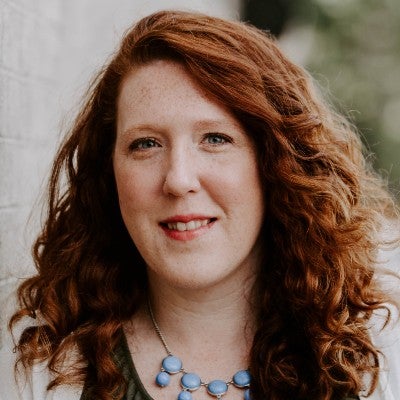There are no laws that require you to purchase homeowners insurance. However, the right policy safeguards your house and belongings from specific risks, like theft, storm damage, or fire. If a covered event damages your home, your insurance policy can help you manage the financial toll.
Even though homeowners insurance isn’t required by law, it’s often mandated by lenders as part of a mortgage agreement. Still, even if you don’t have a mortgage, a home insurance policy is often a wise investment given the potentially high costs of home-related expenses.
When is homeowners insurance required?
Homeowners insurance is often required if you take out a mortgage to buy a house. Mortgage lenders usually require borrowers to carry a specific type and amount of coverage for the duration of the mortgage. If you’re buying a home and using a mortgage, you’ll also need to provide proof of insurance, including the policy terms and proof of payment, at closing.
Lenders frequently require coverage because they have a financial stake in the property and want to ensure it’s secured against specific disasters, such as lightning or vandalism.
For similar reasons, you may need to purchase additional coverage, such as flood, earthquake, or windstorm insurance, if your house is in an area at high risk for those events.
Once you've paid off your mortgage, you no longer have to maintain homeowners insurance, but it’s a smart idea to keep it. The protection it offers for the structure of your home and personal belongings is invaluable, and it can save you from financial hardship after a loss, such as a fire.
What if I have a homeowners association (HOA)?
Some communities and developments are overseen by a homeowners association (HOA). If you're part of one, you'll pay HOA fees, some of which may go towards HOA insurance. This is a master policy that covers common areas and building exteriors, including sidewalks, the lobby of a condo, or the pool in a gated community.
HOA insurance only covers shared spaces. It doesn't extend to the structure of your home or your personal belongings. For that, you'll need to purchase your own homeowners or condo insurance. In some cases, your HOA may even require you to carry some level of home insurance, even if you don’t have a mortgage.
How much homeowners insurance does a lender require?
Your lender will determine the minimum amount of insurance coverage you need to secure your loan.
Lenders often require borrowers to carry enough dwelling coverage (coverage for the structure of your house) to cover the full replacement cost of the house. The replacement cost of your home is the estimated cost to rebuild it, including labor and materials, if a covered event destroys it.
In some cases, a lender may only require you to purchase enough coverage to match the remaining balance on your mortgage.
For instance, if your home is worth $600,000 but you only have a $300,000 mortgage, you may only need to purchase $300,000 worth of dwelling coverage. However, this could potentially leave you underinsured, meaning you may not have sufficient coverage to fully protect your house or recoup your expenses in the event of a total loss.
Lenders may also require you to have some personal liability coverage in place to safeguard against potential lawsuits related to your home, such as if a neighbor sues after a tree in your backyard falls through their window.
Lender requirements can also vary, so it's essential to inquire about coverage requirements before you close on your home.
Ready to buy a policy? Here’s how much coverage you should have.
Homeowners insurance vs. mortgage insurance
While home insurance protects your house from any cost of damage related to your property, mortgage insurance protects the lender in case you stop making payments or default on the loan. They’re two distinct types of insurance related to purchasing and owning a home that are required under different circumstances.
Here’s a breakdown of homeowners vs mortgage insurance.
| Required? |
Homeowners insurance: Yes, if you have a mortgage. Mortgage insurance: Typically required if your down payment is less than 20% of the purchase price. |
| What does it protect? |
Homeowners insurance: Your home and belongings if they're damaged by a covered event. Also provides personal liability protection. Mortgage insurance: Your lender if you don't pay your mortgage. |
| How much does it cost? |
Homeowners insurance: Based on multiple factors, including the type and amount of coverage you buy and where you live. Mortgage insurance: Based on your loan amount. |
| Who benefits? |
Homeowners insurance: You (the homeowner) and the lender. Mortgage insurance: Lender. |
What happens if you don’t have home insurance?
At minimum, without home insurance coverage, you will have to pay out of pocket to repair your home or replace your property after a loss.
For instance, if your house is struck by lightning and the roof is damaged, you’ll have to replace it at your own cost. Likewise, if your home is burglarized, and someone steals your valuables, you'll have to pay out of pocket to replace the items.
Standard home insurance policies typically include liability insurance as well. In the absence of that coverage, you may be on the hook for medical bills or property replacements if someone is injured on your property or you or a covered member of your household damages their property.
Further, if you’re sued after the incident, you’ll need to cover your legal fees and any subsequent settlements or judgments. But if you had a personality liability insurance (also known as Coverage E) as part of your policy, the insurance company would help pay for these legal expenses if you’re sued.
If you have a mortgage and don’t maintain coverage, you leave yourself vulnerable to the risks above, but you’ll also be in breach of your lending agreement. Once in breach, you can face several consequences, including fines, penalties, and potentially foreclosure. Your lender can also purchase a forced-place insurance policy for you. These policies are often more expensive but offer less coverage.





